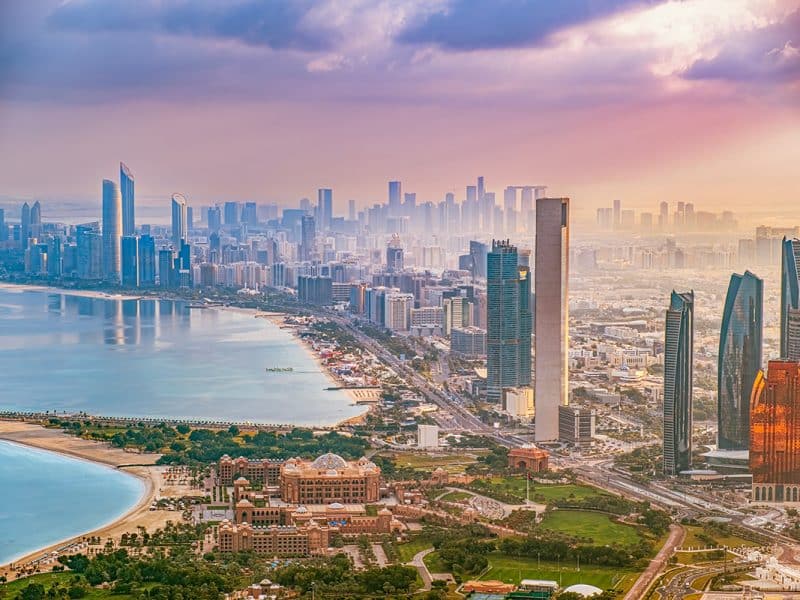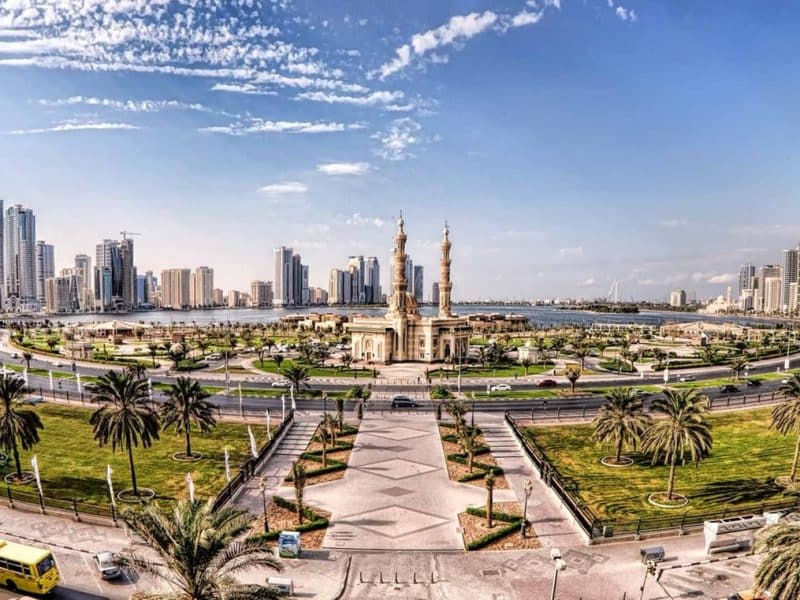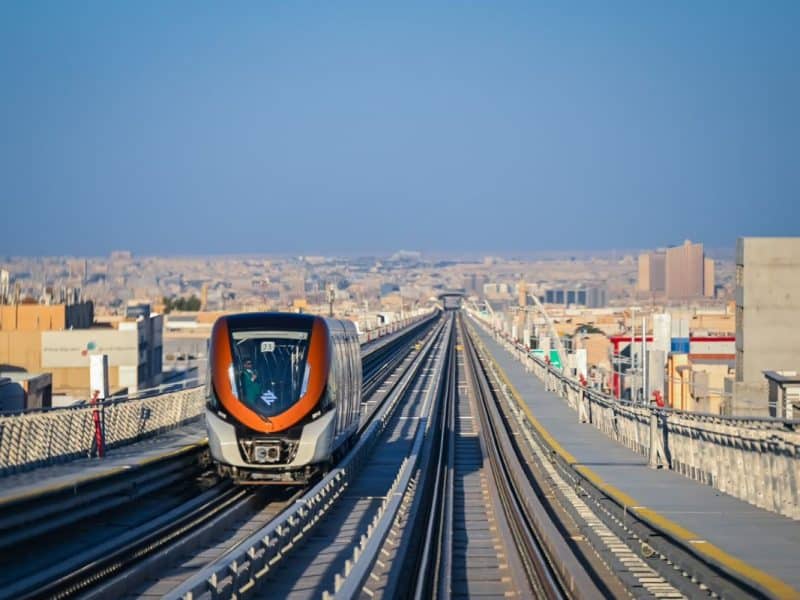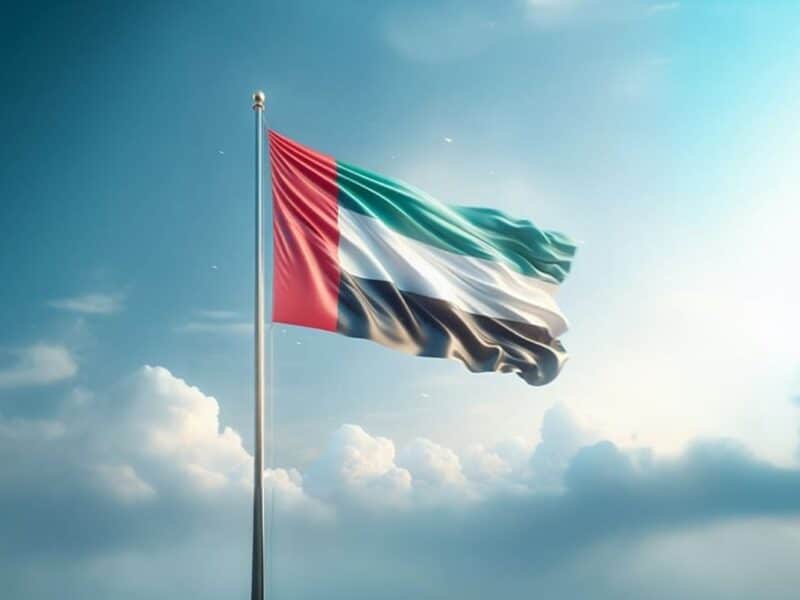|~||~||~|Back in 1981, Fadi Ghandour spotted his opportunity. At the time, the express delivery market was beginning to boom in the US, but American companies had limited capabilities when it came to delivering packages overseas. The solution would be to outsource deliveries to a partner company focused on a particular geography.
In the Middle East, however, the only player with regional reach in the early 1980s was DHL, and other express companies were reluctant to hand over business to one of their rivals.
So Ghandour, working with an American co-founder, decided to establish a company that would provide the missing link to these international express delivery firms.
Aramex International quickly won contracts from major, if now forgotten, US express companies including Emery, Airbourne Express and Purolator Courier, and a few years later from FedEx. “These were the biggest express companies; however, they were only thinking about the domestic market; none of them were looking at becoming international at that time,” recalls Ghandour, Aramex’s president & CEO.
“What we had was a unique offering. We were going to these people and saying: ‘We are a neutral operator and we are setting up a regional network in the Middle East. Instead of you giving your packages to DHL, we will deliver it, as DHL is a competitor.’ That was the origins of this business, and we built it by getting those accounts.”
Almost 25 years on, the company that was set up to serve the needs of overseas companies is now a major international player in its own right and Ghandour intends to make it even bigger. It has turned into a much larger express delivery company and has entered markets such as freight forwarding.
Its transformation has been down to acquisitions and its leadership of the Global Distribution Alliance (GDA), a global network of regional express companies. Ghandour, however, believes that the company can go further and add its name to the big four express delivery players: DHL, FedEx, TNT and UPS.
“I might sound a bit grandiose here, but I think Aramex has an opportunity today — along with its alliances and certain strategic acquisitions — to become the fifth in the big five,” he says. “It is ambitious, but, heck, if you are not ambitious, you are not going to go anywhere.”
The twin strategy of alliances and strategic acquisitions has so far produced strong results for Aramex. In 2004, the company grew its revenue 25% compared to 2003, achieving a figure of US$188.7 million. Net profit also jumped 29% to reach US$13 million.
This growth is even more impressive given the fact that the company had to re-adjust its international strategy following DHL’s 2003 purchase of Airbourne Express. This event saw a reshaping of Aramex’s operations not just in the US, but also globally as Airbourne was one of those international express companies that Aramex relied on.
With DHL adding Airbourne to its operations, the US company’s global network was no longer accessible to Aramex, diminishing its ability to deliver to the world’s largest economy. However, Aramex stepped up to form and lead replacements networks, the Global Distribution Network and the World Freight Alliance. Now, with extra financial muscle following its flotation on the Dubai Financial Market in June 2005, Aramex’s strategy is built around defending and enhancing these networks.
“We felt that we needed to do a public offering to be much more aggressive in acquisitions,” says Ghandour. “It has also put us in a position to do our strategic thinking, which says it is good to concentrate on emerging markets, but at the same time, it is essential for us to secure certain strategic areas around the world to protect our alliance — meaning that I do not want to be in a surprise situation again.”
The importance of this was clearly shown over the summer of 2005, when UPS bought Lynx Express, which was Aramex’s British express partner. In September 2005, the company responded by gobbling up Priority Airfreight, a UK firm specialising in courier traffic between the UK and the US.
The acquisition is expected to bolster Aramex’s shipment volume between the American and European continents and enhance its express business across the Atlantic. Priority has facilities at both JFK Airport and London Heathrow.
“The UK market is critical for us. It is a serious market, and we have to be there. There is no question about that,” says Ghandour.
Aramex is also looking to further firm up its presence in the US, where it wants a true replacement for Airbourne. The company’s express operations are currently divided between a number of players, including UPS. Aramex seeks an independent partner able to undertake the majority of its US deliveries. “You have to eventually have an independent presence in the US and not depend on your competitor for the majority of the work,” says Ghandour.
“Currently, we are seriously looking at a couple of other alternatives that would give us that independent presence. I am not at liberty to say who yet, but we are probably close enough to say that early in the first quarter of [2006] we
will finally decide.”
Finding a partner is difficult, however, as DHL, FedEx and UPS currently dominate the US express market, and few other companies are able to offer nationwide doorstep deliveries. Aramex is planning to get round this problem by creating a presence in a few key markets that will be enough to cover the majority of its US business. It will then rely on one of the big three for the rest.
“From our study, we need to be in no more than seven to ten markets to give us coverage of 80% of the US market,” explains Ghandour. “We will then have one major partner that covers the majority of our requirements. For the other 20%, we will have to be a bit more flexible,” he adds.
Making acquisitions in developed markets is still possible for Aramex, despite the global domination of the big four, because the market is still highly fragmented. This is becoming less true everyday, because of the constant stream of deals being done in the US and Europe, but there are still opportunities available for Aramex that will allow it to become a global player.
“If you look at [the market] today in terms of logistics, freight forwarding and express, you have the big four, and then you have an amazing number of regional or national companies that need to be part of an alliance or that want to be acquired, or which have a nice niche for themselves and would not mind looking at various options,” says Ghandour.
“A lot of these companies are also owned by private equity firms and all these PE firms want to exit, as they are not in the business for strategic reasons so much as to make a return on their investment,” he adds. “Our problem at this stage really is to decide which are the best companies to invest in.”
In emerging markets, there are still plenty of companies to invest in, but they tend to be owned by the founder rather than an investment house. This means that the negotiations are significantly different to talks with US or European equity funds. “In one [company], they are looking at the returns they are getting, while in the other, the owner is deciding, emotionally really, if they want to exit from the business, or if they want to have a partner like Aramex coming in,” notes Ghandour.
These conversations will have to be had, however, if the company wants to be present in the emerging economies of China and India.
“You cannot be a global company unless you are covering the Chinese market, so we will have either a very secure strategic alliance, or we will acquire a substantial stake in a company or a joint venture,” Ghandour explains.
In India, Aramex says it is already doing well. “However, with a market as big as that, you always need to grow more,” says Ghandour. “We are therefore looking at opportunities and there are plenty of small and medium-sized companies in India that could be an interesting target for us.”
Recent acquisitions in the UK and North America and plans to move into China and India show just how far this Middle Eastern company has come since Ghandour set it up in Jordan 25 years ago.
Opportunities remain, however, so don’t be surprised if Aramex achieves its goal of becoming the world’s fifth major express delivery company.||**||








